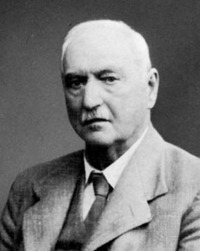The one unbreakable rule is this: a detective story is a story about an investigation. At the end, things are revealed that were hidden; things in shadow are brought out into the light. And for this reason a detective story is often also a puzzle: the reader is given some or all of the same facts as the detective and can try to equal or even beat the detective’s record in solving the case. — Jon JermeyFollowing the links below will lead you to fuller discussions.
Jon Jermey believes it is better to define the classic detective story by what it is NOT:
- It is not a thriller.
- It is not about crime.
- It is not about a criminal.
- It is not about the detective as a character.
- It is not about violence.
- It is not about death.
- It is not about romance.
- It is not about "hunches," intuitions, clairvoyance, or telepathy.
~ "Introduction to a Course on GAD"
Wyatt James adds:
The classic mystery novel has been criticized for years (e.g., by Raymond Chandler) for being unrealistic. Nobody who wrote them would ever say they were intended to be.
A good mystery is an escapist reading experience, not involving abdication of intelligence or critical viewpoint as with a Harlequin romance or a shoot-em-up of either the sadistic Mickey Spillane or comic-book superhero Doc Savage type, but a suspension of disbelief is required. ~ "What Is the Golden Age of Detection"R. Austin Freeman tells us what makes classic detective fiction special:
The distinctive quality of a detective story, in which it differs from all other types of fiction, is that the satisfaction that it offers to the reader is primarily an intellectual satisfaction. This is not to say that it need be deficient in the other qualities appertaining to good fiction: in grace of diction, in humour, in interesting characterization, in picturesqueness of setting or in emotional presentation. On the contrary, it should possess all these qualities. It should be an interesting story, well and vivaciously told. But whereas in other fiction these are the primary, paramount qualities, in detective fiction they are secondary and subordinate to the intellectual interest, to which they must be, if necessary, sacrificed. The entertainment that the connoisseur looks for is an exhibition of mental gymnastics in which he is invited to take part; and the excellence of the entertainment must be judged by the completeness with which it satisfies the expectations of the type of reader to whom it is addressed. ~ "The Art of the Detective Story"Among his two dozen notes about detective fiction, Raymond Chandler points out:
It [the story] must baffle a reasonably intelligent reader. This opens up a very difficult question. Some of the best detective stories ever written (those of Austin Freeman, for example) seldom baffle an intelligent reader to the end. But the reader does not guess the complete solution and could not himself have made a logical demonstration of it. Since readers are of many minds, some will guess a cleverly hidden murder and some will be fooled by the most transparent plot. (Could "The Red Headed League" ever really fool a modern reader?) It is not necessary or even possible to fool to the hilt the real aficionado of mystery fiction. A mystery story that consistently did that and was honest would be unintelligible to the average fan; he simply would not know what the story was all about. But there must be some important elements of the story that elude the most penetrating reader.
The hero of the mystery story is the detective. Everything hangs on his personality. If he hasn't one, you have very little. And you have very few really good mystery stories. Naturally. ~ "Notes on the Detective Story"Category: Detective fiction

No comments:
Post a Comment